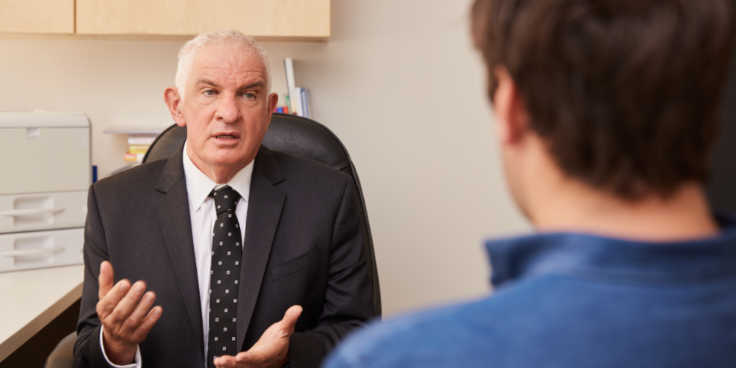
DrinkWise urges parents to educate teenagers about underage drinking risks

DrinkWise has today announced its plans to bolster its education efforts that highlight the importance of parents not supplying their underage teenagers with alcohol, after new research from the Australian Institute of Health & Welfare’s (AIHW) National Drug Strategy Household Survey (NDSHS) 2022-2023 revealed alarming attitudes towards underage drinking.
While underage abstinence rates are significantly better than 20 years ago, there is still some way to go in shifting attitudes, with the new statistics showing that almost one in three people (32%) believe that a 16- or 17-year-old can occasionally drink one or two standard drinks without putting their health at risk1. Alarmingly, half (50%) of people aged 14-17 agreed with this statement2.
Of concern, around one in four people (24%) believe that it’s beneficial to provide a 16- or 17-year-old with a little bit of alcohol in preparation for drinking as an adult3, as do one in three (33%) people aged 14–17 years old4.
Adolescent psychologist, Dr Michael Carr-Gregg, found the new research disturbing and believes that ongoing education for parents and teenagers is critical, which is why DrinkWise’s It’s okay to say nay campaign is so important in protecting underage teenagers from alcohol.
“This campaign is such an important public health campaign as the advice to parents is clear – just say no to giving your kids alcohol.” Dr Carr-Gregg said.
In some good news, statistics on parental supply norms have shown 89% of parents are not supplying alcohol to their underage teenagers (up from 87% in 2019)5, with the number of parents reported as being the usual supplier of alcohol to underage teens declining (from 41.6% in 2019 to 36.1% in 2022-23)6.
“Whilst the overwhelming majority of parents are doing the right thing, this misconception that alcohol is not harmful for underage teenagers is extremely worrying.
“The teenage brain is growing, which makes these findings – that almost a quarter of people believe that providing underage teens with alcohol is beneficial in preparation for drinking as an adult – particularly concerning. It’s in no way beneficial – the medical and psychological effects of alcohol on underage teenagers are detrimental to their school life and mental health and are a serious disadvantage to their development. Teenagers who do drink underage are more likely to binge drink, experience alcohol-related harm such as accidents, blackouts and be involved in fights or problematic drinking in their future adolescent years. My advice to parents is to start the conversation around alcohol early and have it often so you can help your underage teenagers make the smart choice to abstain from drinking. As parents we shouldn’t be giving our kids any alcohol – we need to be consistently saying no,” said Dr Carr-Gregg.
DrinkWise Chief Executive Officer, Simon Strahan further acknowledged that while figures show parents supplying their children with alcohol is on the decline, there is still more to be done.
“We’ve seen a significant increase in underage teenagers abstaining from alcohol over the past 15 years and while that is pleasing, it is worrying that a significant proportion of Australians think that underaged teenagers having an occasional drink doesn’t put their health at risk.
“Ongoing education is crucial to discouraging underage drinking and helping parents understand their capacity to set boundaries and be positive role models, as this is pivotal to generational change when it comes to alcohol.”
We know that abstaining from alcohol when underage helps protect teenagers, so we want to reassure parents that not supplying alcohol is the right thing to do. We also want to remind parents that the overwhelming majority of other parents aren’t supplying their kids with alcohol – so they can be confident in saying no,” said Mr Strahan.

Echoing the concerns, DrinkWise ambassador and medical health expert, Dr Andrew Rochford, says that it all starts inside the home and parents can’t become complacent.
“As parents, we all want the best for our kids – and that means we need to be setting definitive boundaries around alcohol. The information is clear – no amount of alcohol is safe for underage teenagers. Throughout their teens and into their twenties, their brain continues to grow and form. The frontal lobe and hippocampus – the areas of the brain that are associated with motivation, impulse control and addiction are going through the most dramatic growth. Drinking alcohol while this growth is happening can disrupt your child’s brain development and even damage their brain. That is why this DrinkWise campaign is so important,” Dr Rochford said.
Focused on reducing the parental supply of alcohol to underage teenagers, the It’s okay to say nay campaign is guided by experts in research, public health and medicine, in addition to being developed and successfully tested with parents and underage teenagers.
The DrinkWise It’s okay to say nay messaging will be promoted on television, radio and on digital and social media, for more information on DrinkWise’s It’s okay to say nay campaign visit the DrinkWise website.
Sources:
- Almost one in three people (32%) believe that a 16- or 17-year-old can occasionally drink one or two standard drinks without putting their health at risk (The Australian Institute of Health & Welfare National Drug Strategy Household Survey, 2022-2023).
- Half (50%) of underaged teens aged 14-17 agreed with that a 16- or 17-year-old can occasionally drink one or two standard drinks without putting their health at risk (The Australian Institute of Health & Welfare National Drug Strategy Household Survey, 2022-2023).
- One in four people (24%) believe that it’s beneficial to provide a 16- or 17-year-old with a little bit of alcohol in preparation for drinking as an adult (The Australian Institute of Health & Welfare National Drug Strategy Household Survey, 2022-2023).
- One in three (33%) underaged teens aged 14–17 years old agreed it’s beneficial to provide a 16- or 17-year-old with a little bit of alcohol in preparation for drinking as an adult (The Australian Institute of Health & Welfare National Drug Strategy Household Survey, 2022-2023).
- 89% of parents don’t supply alcohol to their underage teenagers was calculated in consultation with AIHW. The statistic reflects norms around parent supply of alcohol to minors and was calculated using a) the percentage of 14–17-year-olds who drank in the past 12 months (see Table 4.6) and b) of those 14-17 year olds who drank in the past 12 months, the percentage who reported their usual supply of alcohol were from parents (see Table 4.10). (The Australian Institute of Health & Welfare National Drug Strategy Household Survey, 2022-2023).
- Of those (14-17 year-olds) who drink, 36.1% reported their usual source of alcohol was supplied by their parents, compared to 41.6% in 2019 (The Australian Institute of Health & Welfare National Drug Strategy Household Survey, 2022-2023).
Podcasts
Why Schoolies are embracing exercise and ditching hangovers
Play 16 Nov 2024DrinkWise urges parents to educate teenagers about underage drinking risks
Play 29 Feb 2024#451 Brews News' News
Play 2 Feb 2024#450 Digging Wells
Play 30 Jan 2024Matt Hepburn and Christen McGarry - Your Mates Brewing
Play 19 Jan 2024



